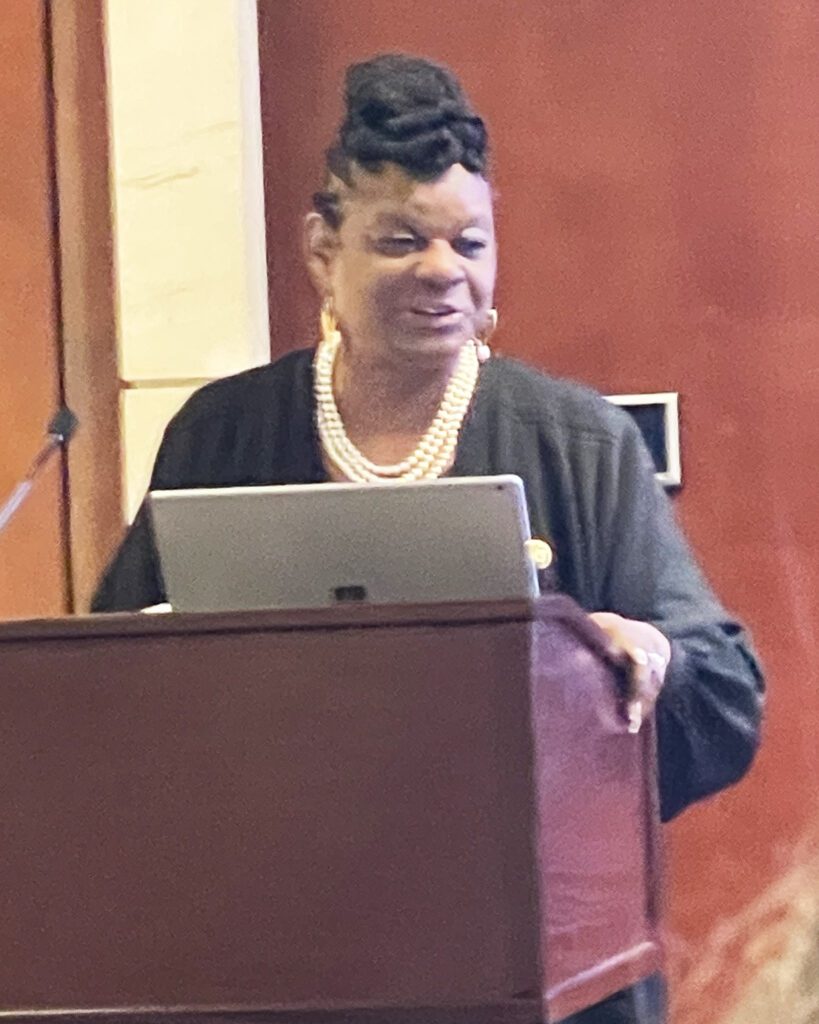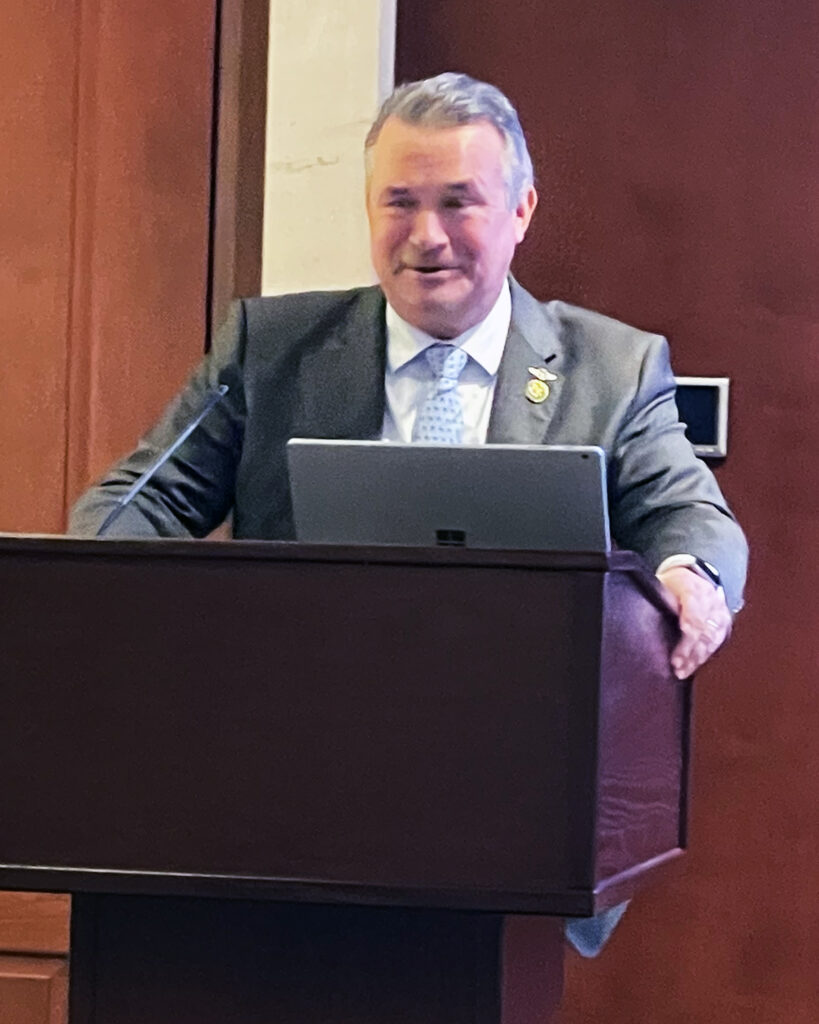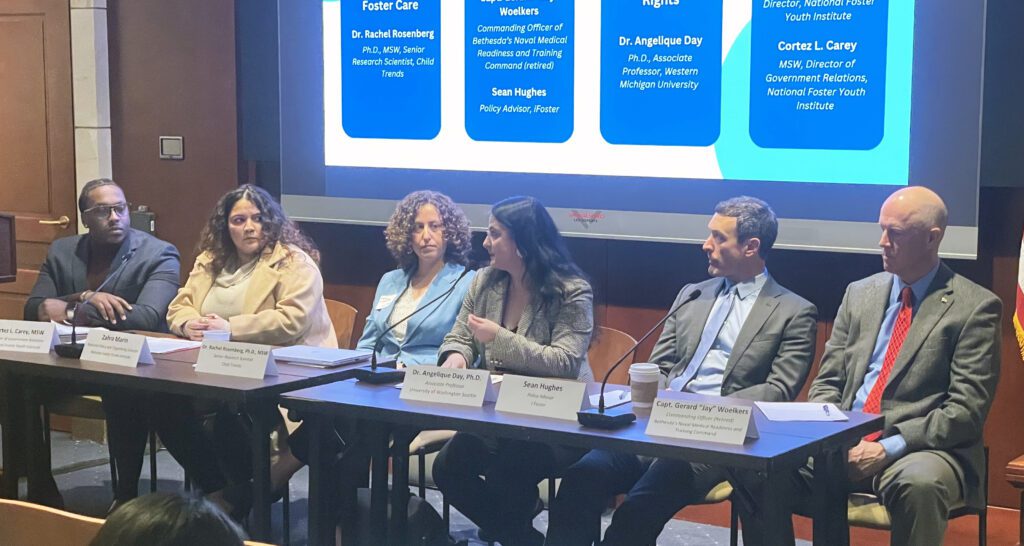Bipartisan Foster Youth Caucus Convene to Discuss Key Bills
The tenor and tone on Capitol Hill usually range from tart to downright antagonistic. So, it is refreshing to witness members from both parties collaborate on legislation to improve the experience of children in foster care and smooth their transition into self-sufficiency. Last week, key Congressional caucuses on child welfare issues gathered in Room 268 in the Congressional Visitor Center to review legislative priorities for the 118th Congress. The Congressional Caucus on Foster Youth and its affiliate, the National Foster Youth Institute (NFYI), joined with the Senate Caucus on Foster Youth and the Congressional Coalition on Adoption and its institute (CCAI) for this bipartisan forum.
The Congressional Caucus on Foster Youth was founded and chaired by Los Angeles Mayor Karen Bass during her first term in Congress beginning in 2011. NFYI was created as an affiliate of the Caucus on Foster Youth in 2012 to ensure young people with foster care experience would be included in discussions on child welfare policy on the Hill.
The Caucus on Foster Youth has six co-chairs, led by Rep. Gwen Moore (D-WI-4). The other co-chairs are Rep. Don Bacon (R-NE-2); Rep. Sydney Kamlager-Dove (D-CA-37), who succeeded Ms. Bass; Rep. Nancy Mace (R-SC-1); Rep. Zack Nunn (R-IW-3); and Rep. Mary Gay Scanlon (D-PA-5). All attended the session except Rep. Mace and Rep. Nunn, who sent a video recording. Rep. Bobby Scott (D-VA-3), the ranking member of the Committee on Education and the Workforce, also attended.

Congresswoman Gwen Moore has assumed the primary leadership role for the caucus after the departure of Ms. Bass. She moderated Wednesday’s meeting. Several Members of Congress attended the event, including co-chairs Reps. Bacon, Kamlager-Dove, and Scanlon. Congressman Bacon gave a heartfelt description of his experience with foster that motivated him to support the caucus. He is a foster dad. He and his wife adopted a brother and sister when they were eight and nine years old. He already had two biological children. He learned first-hand about the difficulties of raising children with incarcerated parents. His foster daughter had numerous behavioral problems. Both children eventually adjusted and are doing well as adults.


Rep. Bacon highlighted a bill introduced by Republican Sen. Deb Fischer of Nebraska and Democratic Sen. John Hickenlooper of Colorado, S. 102—Foster Care Stabilization Act of 2023, that would provide grants to improve pre-placement support services for foster youth, as an example of bipartisan cooperation. He introduced a companion bill, H.R.756, with Caucus co-chairs Reps. Moore, Nunn, and Scanlon. Rep. Kamlager-Dove followed with a tribute to former Congresswoman Bass for bringing Members from both parties together to improve the lives of youth with foster care experience.
The highlight of the meeting was testimony by foster experts, including CRISP legislative director Dr. Angelique Day, herself an alumna of the foster care system. She reminded policymakers that numerous bills were introduced in the previous Congress, and there should be a concerted effort to make sure those bills were reintroduced in the current Congress. She pointed specifically to the Strengthen Tribal Families Act and the Tribal Family Fitness Act.
As a person of Native American heritage, Dr. Day has been at the forefront of the effort to preserve the Indian Child Welfare Act under review by the U.S. Supreme Court. She sees Congress as a backstop should the Court declare ICWA unconstitutional. Dr. Day reminded participants that ICWA was the gold standard and that much of the progress in advancing kinship care correlates with efforts to keep tribal children in families that share their culture.
Others on the panel included Sean Hughes, a policy advisor for iFoster, a national nonprofit devoted to ensuring foster youth receive the resources necessary to achieve self-sufficiency and Capt. Gerard “Jay” Woelkers, retired Commanding Officer at Bethesda’s Naval Medical Readiness and Training Command, offered that the foster care community could learn a few things from the military about transitioning soldiers from active duty to retirement. However, some are wary about the military engaging with foster youth, often the target of recruiters.
Dr. Rachel Rosenberg, a Senior Research Scientist at Child Trends, highlighted a few key trends in foster care, such as the lack of extended for older foster care youth and that abuse has decreased as a reason for youth entering the foster care system as neglect has increased. On a good note, she revealed that fewer young people are being placed in congregate care as rates of kinship care and supervised independent living are rising.


Zahra Marin, NFYI National Policy and Organizing Director, and Cortez Carey, NFYI Director of Government Relations, shared their strategy for promoting policy advocacy and leadership among youth with foster care experience and areas of focus, including revamping eligibility, increasing funding, finding permanent connections for foster care youth, and kinship navigation.
Following this session, Dr. Day was off to a Kinship Unity National Convening of policy advocates with lived and professional expertise to prioritize policy opportunities leading to a solid and actionable national agenda. Co-sponsored by Generations United, Think of Us, and the American Bar Association Center on Children and the Law, the convening’s goal was to forge and strengthen relationships among lived experts to celebrate successes and seek opportunities to lift the voices of those impacted by a flawed system.
